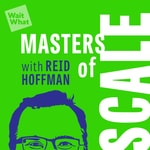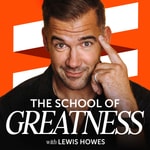On Being with Krista Tippett – Details, episodes & analysis
Podcast details
Technical and general information from the podcast's RSS feed.

On Being with Krista Tippett
On Being Studios
Frequency: 1 episode/9d. Total Eps: 977

Recent rankings
Latest chart positions across Apple Podcasts and Spotify rankings.
Apple Podcasts
🇨🇦 Canada - societyAndCulture
29/07/2025#64🇬🇧 Great Britain - societyAndCulture
29/07/2025#82🇺🇸 USA - societyAndCulture
29/07/2025#84🇨🇦 Canada - societyAndCulture
28/07/2025#76🇬🇧 Great Britain - societyAndCulture
28/07/2025#79🇺🇸 USA - societyAndCulture
28/07/2025#79🇨🇦 Canada - societyAndCulture
27/07/2025#70🇬🇧 Great Britain - societyAndCulture
27/07/2025#80🇺🇸 USA - societyAndCulture
27/07/2025#78🇨🇦 Canada - societyAndCulture
26/07/2025#79
Spotify
No recent rankings available
Shared links between episodes and podcasts
Links found in episode descriptions and other podcasts that share them.
See all- https://katebowler.com/podcasts/
808 shares
- https://mastersofscale.com/
573 shares
- https://eji.org/
400 shares
RSS feed quality and score
Technical evaluation of the podcast's RSS feed quality and structure.
See allScore global : 63%
Publication history
Monthly episode publishing history over the past years.
adrienne maree brown — On Radical Imagination and Moving Towards Life
Episode 1137
mercredi 3 juillet 2024 • Duration 01:20:13
The wonderful civil rights elder Vincent Harding liked to look around the world for what he called "live human signposts" — human beings who embody ways of seeing and becoming and who point the way forward to the world we want to inhabit. And adrienne maree brown, who has inspired worlds of social creativity with her notions of "pleasure activism" and "emergent strategy," is surely one of these.
We're listening with new ears as she brings together so many of the threads that have recurred in this season of On Being: on looking the harsh complexity of this world full in the face while dancing with joy as life force and fuel, and on keeping clear eyes on the reasons for ecological despair while giving oneself over to a loving apprenticeship with the natural world as teacher and guide. A love of visionary science fiction also finds a robust place in her work and this conversation. She altogether shines a light on an emerging ecosystem in our world over and against the drumbeat of what is fractured and breaking — the cultivation of old and new ways of seeing, towards a transformative wholeness of living.
adrienne maree brown’s influential books include Emergent Strategy, We Will Not Cancel Us, and Pleasure Activism. More recently, she has published Maroons, a work of speculative fiction, and she co-edited the anthology Octavia’s Brood: Science Fiction from Social Justice Movements. She also co-hosts the podcast How to Survive the End of the World. And, a special heads up: in late summer 2024, adrienne maree brown will publish a phenomenal new book — Loving Corrections.
Find the transcript for this show at onbeing.org.
______
Sign up for The Pause — a Saturday morning companion newsletter to the On Being podcast season, and our mailing list for news and invitations all year round. Be the first to know as tickets go on sale for the On Being 2025 live national conversation tour.
“The End of Poetry” by Ada Limón
Episode 1136
vendredi 28 juin 2024 • Duration 01:43
An impassioned plea, a yearning for connection — the poem U.S. Poet Laureate Ada Limón wrote when she says all language failed her. Take in Ada's reading of her piece, “The End of Poetry” — and hear her read more of her work in the On Being episode, “To Be Made Whole.”
Ada Limón is the 24th Poet Laureate of the United States. She’s written six books of poetry, including The Carrying, which won the National Book Critics Circle Award for Poetry, and Bright Dead Things, which was a finalist for the National Book Award. Her most recent volume is The Hurting Kind. As poet laureate, she edited the collection You Are Here, part of her signature project focusing on how poetry can connect us to the natural world. She is a 2023 MacArthur Fellow, a former host of the poetry podcast The Slowdown, and an instructor in the MFA program at Queens University of Charlotte, in North Carolina.
Lyndsey Stonebridge and Lucas Johnson — On Love, Politics, and Violence (Channeling Hannah Arendt)
Episode 1127
jeudi 23 mai 2024 • Duration 01:15:26
Here is a stunning sentence for you, written by Lyndsey Stonebridge, our guest this hour, channeling the 20th-century political thinker and journalist Hannah Arendt: "Loneliness is the bully that coerces us into giving up on democracy." This conversation is a kind of guide to generative shared deliberations we might be having with each other and ourselves in this intensely fraught global political moment: on the human underlay that gives democracy its vigor or threatens to undo it; on the difference between facts and truth — and on the difference between violence and power. Krista interviewed Lyndsey once before, in 2017, after Hannah Arendt's classic work, The Origins of Totalitarianism, had become a belated runaway bestseller. Now Lyndsey has published her own wonderful book offering her and Arendt's full prescient wisdom for this time. What emerges is elevating and exhilaratingly thoughtful — while also brimming with helpful, practicable words and ideas. We have, in Lyndsey's phrase, "un-homed" ourselves. And yet we are always defined by our capacity to give birth to something new — and so to partake again and again in the deepest meaning of freedom.
Hannah Arendt's other epic books include The Human Condition, and Eichmann in Jerusalem, in which she famously coined the phrase "the banality of evil." She was born a German Jew in 1906, fled Nazi Germany and spent many years as a stateless person, and died an American citizen in 1975. This conversation with Lyndsey Stonebridge happened in January 2024, as part of a gathering of visionaries, activists, and creatives across many fields. Krista interviewed her alongside Lucas Johnson, a former leader of the International Fellowship of Reconciliation who now leads our social healing initiatives at The On Being Project.
Lyndsey Stonebridge is a Professor of Humanities and Human Rights at the University of Birmingham in the U.K. Her 2024 book is We Are Free to Change the World: Hannah Arendt’s Lessons in Love and Disobedience. Her other books include Placeless People: Writings, Rights, and Refugees. In 2023, she was elected a Fellow of the British Academy.
Lucas Johnson is Executive Vice President of Public Life & Social Healing at The On Being Project. He was previously a leader of the International Fellowship of Reconciliation, the world’s oldest interfaith peace organization.
Find the transcript for this show at onbeing.org.
Note: A previous version of this audio mistakenly attributed a quote to James Baldwin. The author of the quote is Maria Popova, creator of The Marginalian, and appears in an essay she wrote discussing Baldwin’s work.
______
Sign up for The Pause — a Saturday morning companion newsletter to the On Being podcast season, and news and invitations all year round. Be the first to know as tickets go on sale for the On Being 2025 live national conversation tour.
[Unedited] Gal Beckerman with Krista Tippett
Episode 1035
jeudi 24 février 2022 • Duration 01:44:36
When time becomes history, different dynamics come into focus than the ones that are at any moment screaming for attention. The title of Gal Beckerman’s book intrigues and compels: The Quiet Before. He’s a journalist with a special interest in history and words and ideas — how ideas are passed and debated and become defining in generational time; how conversation becomes culture-shifting relationship. He attends to dynamics we don’t often take seriously enough: that every idea and discovery that changes the world begins with seeds planted over long stretches, and that this is always marked by passages that look like abject failure. Gal’s conversation with Krista offers fantastically useful insights into how our generation’s media that can scale things more rapidly than ever before can also inhibit the very ingredients that make for lasting transformation. At the same time, this lens on our world refreshes with its perspective on the way change happens, as opposed to mere disruption — the reality that our lives and actions below the radar hold the possibility of being more generative than we can measure.
Gal Beckerman is the senior editor for books at The Atlantic. He has been a writer and editor for The New York Times Book Review, the Forward, and Columbia Journalism Review. In The Quiet Before: On the Unexpected Origins of Radical Ideas, he tells stories from the last five centuries that have not come down in bold in history, but that incubated developments we later experience as defining — from France to Rome, from Moscow to Ghana to Tahrir Square.
This interview is edited and produced with music and other features in the On Being episode "Gal Beckerman — How Newness Enters the World." Find the transcript for that show at onbeing.org.
Sharon Salzberg and Robert Thurman — Love Your Enemies? (Really?)
Episode 1034
jeudi 17 février 2022 • Duration 50:40
It’s a piece of deep psychological acuity, carried in many religious traditions: that each of us is defined as much by who our enemies are and how we treat them as by whom and what we love. In this episode, two legendary Buddhist teachers shine a light on the lofty ideal of loving your enemies and bring it down to earth. Across a half-century conversation and friendship, Sharon Salzberg and Robert Thurman have investigated the mind science behind this virtue and practice. They illuminate how to transmute the very real, very consequential and consuming energy of anger and hatred — and why love in fact can be a rational and pragmatic stance towards those who vex us. This is a conversation filled with laughter and friendship and with practical wisdom on how we relate to that which makes us feel embattled from without, and from within.
Robert Thurman is the first American to be ordained a Tibetan Buddhist monk by the Dalai Lama. He is president of Tibet House U.S., and was a professor of Indo-Tibetan Buddhist Studies at Columbia University for 30 years. His many books include Inner Revolution and the book he co-wrote with Sharon Salzberg, Love Your Enemies. In 2021, he published Wisdom Is Bliss: Four Friendly Fun Facts That Can Change Your Life.
Sharon Salzberg is one of the original three young Americans who traveled to India in the 1960s and ‘70s and introduced Buddhist meditation into mainstream Western culture. She is a globally renowned meditation teacher and co-founder of the Insight Meditation Society in Barre, Massachusetts. Her books include Real Happiness, Lovingkindness, and most recently, Real Change: Mindfulness To Heal Ourselves and the World.
Find the transcript for this show at onbeing.org.
This show originally aired in October, 2013.
[Unedited] Sharon Salzberg and Robert Thurman with Krista Tippett
Episode 1033
jeudi 17 février 2022 • Duration 01:36:01
It’s a piece of deep psychological acuity, carried in many religious traditions: that each of us is defined as much by who our enemies are and how we treat them as by whom and what we love. In this episode, two legendary Buddhist teachers shine a light on the lofty ideal of loving your enemies and bring it down to earth. Across a half-century conversation and friendship, Sharon Salzberg and Robert Thurman have investigated the mind science behind this virtue and practice. They illuminate how to transmute the very real, very consequential and consuming energy of anger and hatred — and why love in fact can be a rational and pragmatic stance towards those who vex us. This is a conversation filled with laughter and friendship and with practical wisdom on how we relate to that which makes us feel embattled from without, and from within.
Robert Thurman is the first American to be ordained a Tibetan Buddhist monk by the Dalai Lama. He is president of Tibet House U.S., and was a professor of Indo-Tibetan Buddhist Studies at Columbia University for 30 years. His many books include Inner Revolution and the book he co-wrote with Sharon Salzberg, Love Your Enemies. In 2021, he published Wisdom Is Bliss: Four Friendly Fun Facts That Can Change Your Life.
Sharon Salzberg is one of the original three young Americans who traveled to India in the 1960s and ‘70s and introduced Buddhist meditation into mainstream Western culture. She is a globally renowned meditation teacher and co-founder of the Insight Meditation Society in Barre, Massachusetts. Her books include Real Happiness, Lovingkindness, and most recently, Real Change: Mindfulness To Heal Ourselves and the World.
This interview is edited and produced with music and other features in the On Being episode "Sharon Salzberg and Robert Thurman – Love Your Enemies? (Really?)." Find the transcript for that show at onbeing.org.
John O'Donohue – The Inner Landscape of Beauty
Episode 1032
jeudi 10 février 2022 • Duration 50:38
No conversation we’ve ever done has been more beloved than this one. The Irish poet, theologian, and philosopher insisted on beauty as a human calling. He had a very Celtic, lifelong fascination with the inner landscape of our lives and with what he called “the invisible world” that is constantly intertwining what we can know and see. This was one of the last interviews he gave before his unexpected death in 2008. But John O’Donohue’s voice and writings continue to bring ancient mystical wisdom to modern confusions and longings.
John O'Donohue was a poet, theologian, and philosopher. He authored beloved books, including Anam Ċara and Beauty: The Invisible Embrace. To Bless the Space Between Us, a collection of blessings, was published posthumously. A wonderful book drawn from his voice in conversation, Walking in Wonder: Eternal Wisdom for a Modern World, was published in November 2018.
Find the transcript for this show at onbeing.org.
This show originally aired in February 2008.
[Unedited] John O'Donohue with Krista Tippett
Episode 1031
jeudi 10 février 2022 • Duration 01:38:46
No conversation we’ve ever done has been more beloved than this one. The Irish poet, theologian, and philosopher insisted on beauty as a human calling. He had a very Celtic, lifelong fascination with the inner landscape of our lives and with what he called “the invisible world” that is constantly intertwining what we can know and see. This was one of the last interviews he gave before his unexpected death in 2008. But John O’Donohue’s voice and writings continue to bring ancient mystical wisdom to modern confusions and longings.
John O'Donohue was a poet, theologian, and philosopher. He authored beloved books, including Anam Ċara and Beauty: The Invisible Embrace. To Bless the Space Between Us, a collection of blessings, was published posthumously. A wonderful book drawn from his voice in conversation, Walking in Wonder: Eternal Wisdom for a Modern World, was published in November 2018.
This interview is edited and produced with music and other features in the On Being episode “John O'Donohue — The Inner Landscape of Beauty” Find the transcript for that show at onbeing.org.
Trabian Shorters – A Cognitive Skill to Magnify Humanity
Episode 1030
jeudi 3 février 2022 • Duration 50:44
Trabian Shorters is a visionary who has seen and named a task that is necessary for all healing and building, for every vision and plan, whether in a family or a world, to flourish. It’s called Asset Framing — and it works with both new understandings of the brain and an age-old understanding of the real-world power of the words we use, the stories we tell, and the way we name things and people. From everyday social media, to hallowed modes of journalistic, academic, and policy analyses, we have a habit of seeing deficits — and of defining people in need in terms of their problems. This has not only doomed some of our best efforts to failure — it leaves all of us prone to cynicism and hopelessness. What’s exciting is that what Trabian Shorters proposes is not only more effective, it is simple and straightforward to grasp. It is in and of itself dignifying and renewing. The main question you might be asking at the end of this is why, at this advanced stage of our species, it took us so long to learn to asset frame.
Trabian Shorters consults widely in philanthropy, business, nonprofits, and journalism. He’s the founder and CEO of the BMe Community. He’s been a Vice President of Communities at the Knight Foundation, co-led the Ashoka-US venture team, and founded a successful early social impact tech company in 1999. He’s co-editor of the book, Reach: 40 Black Men Speak on Living, Leading and Succeeding.
Find the transcript for this show at onbeing.org.
[Unedited] Trabian Shorters with Krista Tippett
Episode 1029
jeudi 3 février 2022 • Duration 01:25:24
Trabian Shorters is a visionary who has seen and named a task that is necessary for all healing and building, for every vision and plan, whether in a family or a world, to flourish. It’s called Asset Framing — and it works with both new understandings of the brain and an age-old understanding of the real-world power of the words we use, the stories we tell, and the way we name things and people. From everyday social media, to hallowed modes of journalistic, academic, and policy analyses, we have a habit of seeing deficits — and of defining people in need in terms of their problems. This has not only doomed some of our best efforts to failure — it leaves all of us prone to cynicism and hopelessness. What’s exciting is that what Trabian Shorters proposes is not only more effective, it is simple and straightforward to grasp. It is in and of itself dignifying and renewing. The main question you might be asking at the end of this is why, at this advanced stage of our species, it took us so long to learn to asset frame.
Trabian Shorters consults widely in philanthropy, business, nonprofits, and journalism. He’s the founder and CEO of the BMe Community. He’s been a Vice President of Communities at the Knight Foundation, co-led the Ashoka-US venture team, and founded a successful early social impact tech company in 1999. He’s co-editor of the book, Reach: 40 Black Men Speak on Living, Leading and Succeeding.
This interview is edited and produced with music and other features in the On Being episode "Trabian Shorters – A Cognitive Skill to Magnify Humanity." Find the transcript for that show at onbeing.org.









